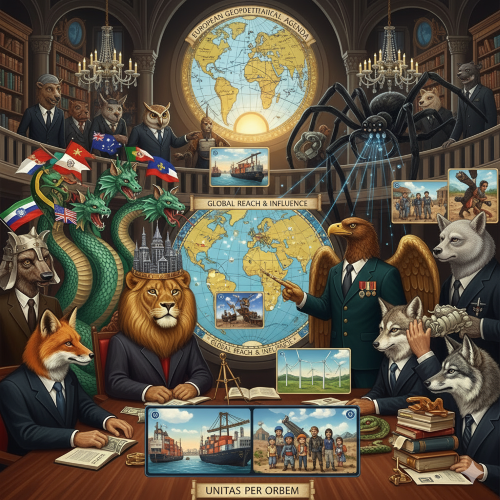Are European elites fostering African dependency through soft power tools such as NGOs, media, and cultural programs?

European elites are actively using soft power tools like NGOs, media, and cultural programs to foster African dependency.
These tools, while often presented as benign or benevolent, are part of a broader strategy to maintain influence, project European values, and secure long-term geopolitical and economic interests on the continent.
This approach is a modern evolution of colonial-era control, shifting from hard power to a more subtle and pervasive form of influence.
The Role of NGOs and Civil Society
European-funded NGOs play a dual role in Africa. On one hand, they provide essential services and support to local communities that governments may not be able to deliver. On the other hand, they create a system of dependency and often serve as a conduit for European policy objectives.
-
Financial Dependency: Many African NGOs and civil society organizations are heavily reliant on funding from European governments and private foundations. This financial dependency gives European donors significant leverage. They can influence which issues are prioritized (e.g., migration, security, climate change) and which projects receive funding, often aligning with European geopolitical interests rather than local needs. This can divert resources and attention away from more fundamental, long-term development challenges.
-
Shaping the Policy Agenda: European NGOs often act as intermediaries, channeling European policy preferences and ideas into African political and social discourse. They may advocate for specific forms of governance, economic policies, or human rights standards that are rooted in a Western framework. This can undermine the development of indigenous solutions and institutions, creating a reliance on external expertise and policy prescriptions.
Media and Narrative Control
European media outlets hold immense power in shaping global narratives about Africa. The dominant representation of the continent in Western media often focuses on a narrow set of negative stereotypes, which serves to reinforce a paternalistic and dependent relationship.
-
The "Poverty, Conflict, and Disease" Trope: European media frequently portrays Africa as a monolithic "dark continent" defined by poverty, conflict, corruption, and disease. This narrative, a direct legacy of colonial-era portrayals, simplifies and dehumanizes the continent, ignoring its vibrant cultures, economic dynamism, and political diversity. By constantly showcasing Africa as a place in need of saving, the narrative reinforces the idea that it is a recipient of European benevolence and that European engagement is a moral necessity.
-
Justifying Intervention: This negative portrayal of Africa serves to justify European intervention and influence. When a region is seen as unstable or plagued by violence, it makes military intervention, security partnerships, and even the "externalization" of borders seem like necessary and legitimate actions. The narrative shifts the focus away from Europe's own role in creating or exacerbating these conditions through unequal trade, arms sales, or historical exploitation.
Cultural Programs and Educational Influence
Cultural programs and educational exchanges are a key component of Europe's soft power strategy, aimed at fostering a shared cultural space that favors European values and languages.
-
Promoting European Languages and Norms: European cultural institutions, such as the British Council, the Goethe-Institut, and the Institut français, promote their respective languages and cultures across Africa. By providing scholarships, cultural events, and educational opportunities, they cultivate a class of African elites who are proficient in European languages and familiar with European norms and institutions. These individuals often become key intermediaries, reinforcing European cultural and political influence.
-
Undermining Indigenous Cultures: While cultural exchange can be a positive force for mutual understanding, it can also lead to the marginalization of indigenous African cultures and languages. The dominance of European cultural products and educational systems can create a sense of cultural inferiority, perpetuating a mental dependency that is difficult to break. This reinforces a system where African knowledge and expertise are valued less than their European counterparts, creating a reliance on European models for development, governance, and even artistic expression.
- Questions and Answers
- Opinion
- Motivational and Inspiring Story
- Technology
- Live and Let live
- Focus
- Geopolitics
- Military-Arms/Equipment
- الحماية
- Economy
- Beasts of Nations
- Machine Tools-The “Mother Industry”
- Art
- Causes
- Crafts
- Dance
- Drinks
- Film/Movie
- Fitness
- Food
- الألعاب
- Gardening
- Health
- الرئيسية
- Literature
- Music
- Networking
- أخرى
- Party
- Religion
- Shopping
- Sports
- Theater
- Health and Wellness
- News
- Culture

